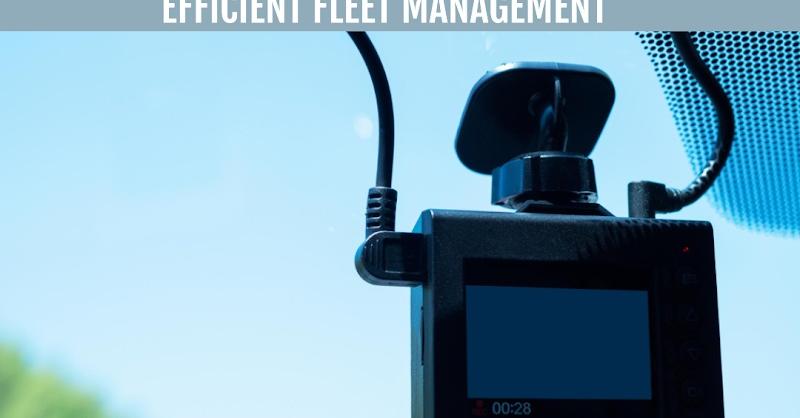Fleet management is essential for businesses that run their operations using several cars because it improves real-time responsiveness. Unfortunately, rolling out effective fleet management is sometimes challenging due to data overload, complex procedures, route planning, and driver management.
To overcome the issues associated with fleet management, GPS trackers can help in automobile monitoring. Whether you run a small, medium, or large-scale business; owning GPS trackers can ease your administrative tasks.
What are GPS Trackers, and How Do They Work?
Global Positioning System (GPS) trackers are gadgets that can determine the exact location of a person or item at any given time. That is why RAM Tracking has widespread usage in various tracking applications, including fleet management, vehicle monitoring, asset tracking, and personal tracking.
The strategically placed GPS satellites that receive and transmit signals help the GPS trackers do their jobs. When a GPS tracker receives a signal from a satellite, it uses the information encoded in that signal to calculate the distance between itself and the satellite.
Signals from at least four satellites are required for the GPS trackers to accurately determine their three-dimensional position (latitude, longitude, and altitude). Transmission of this location data to a central server or user device enables effective real-time control and monitoring of assets or vehicles.
GPS trackers are essential for efficient fleet management because of the following key reasons;
-
Cost Efficiency
When using GPS tracking devices, fleet managers can see more of what’s happening with their cars and operations. They can track down each vehicle and use that information to optimize operations while minimizing expenses.
A GPS tracking device can help a delivery service determine which truck is nearest to a given area. The fastest and most cost-effective way to collect packages is to assign the task to the vehicle closest to the delivery address.
With GPS tracking, it’s also possible for businesses to see how much money is being spent per mile by tracking their fleet cars.
Data like journey distance, arrival time, and time spent idling can all be helpful in planning the amount of money allocated to every delivery journey. The same information will again help fleet managers save money on vehicle repairs.
-
Improved Customer Satisfaction
GPS tracking solutions have increased customer satisfaction for companies providing face-to-face service. A courier service, for instance, may offer its clients tracking information and delivery status updates in real time by using GPS data. This can alert clients from dispatch to the arrival of their package.
-
Increased Vehicle and Driver Safety
GPS trackers which monitor fleets boost corporate durability and ensure driver compliance with company policy. Based on data collected by RAM trackers, fleet managers can easily determine the drivers who move safely on the road.
Motorists who demonstrate safe driving practices can get recognized and rewarded for their efforts. On the other hand, further training in driver safety can also be facilitated for workers who have not yet attained the set standards.
-
Lower Fuel Cost
Even though gas prices are beyond anyone’s control, having a GPS tracker installed on your car lets you keep tabs on how much petrol you’re using. They prevent unnecessary vehicle and driver idle time, illegal use, and excessive speeding to lower fuel costs.
-
Reduced Maintenance Costs
Negligence in preventative maintenance is the most common mistake made by fleet managers. Fleet administrators often wait until serious car problems emerge before undertaking maintenance. However, the price of fixing a car that has broken down is far more than the price of doing routine maintenance.
It’s risky to hold off sending out your automobiles for maintenance until they break. Vehicle malfunctions on the road can lead to accidents, raising repair costs. Injuries to drivers are also more likely, leading to higher costs for treatment and compensation claims.
Fleet managers can efficiently plan for routine vehicle maintenance with the help of GPS tracking systems. You can rest assured that your cars are always road-ready and won’t incur any unexpected costs thanks to the automated reminders that let you know when to inspect each one.
-
Time-Saving
Any time the fleet drivers waste time, they also slow down productivity. With manual fleet management, drivers must fill out documents before leaving for their destination and returning. Fleet tracking systems eliminate paperwork due to the digital storage of fleet information.
-
Real-Time Tracking
Real-time tracking is a game-changer for individuals or companies with a fleet of cars. With GPS tracking technology, businesses can track their assets in real time and better manage their fleets.
This function reduces time and effort for frequent phone checks or manual changes. Real-time tracking makes it easy for businesses to monitor their cars and make informed decisions. It also improves transparency and enables businesses to adapt to new conditions, guaranteeing efficient operations swiftly.
Conclusion
GPS trackers are essential for efficient fleet management due to their capacity to offer real-time tracking, route optimization, increased customer satisfaction, and driver performance assessment. They are also helpful in lowering fuel and maintenance expenses and increasing driver safety and overall business productivity.

